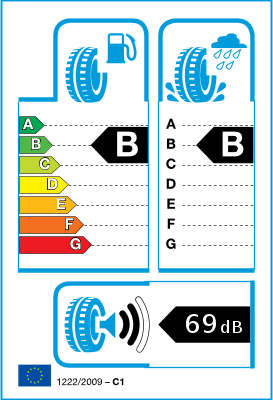I think we all agree that the quiet road surfaces on some new roads have benefits for those living next to busy roads and for drivers enjoying a much quieter car on those stretches. Going from a old concrete dual carriage way to quiet tarmac is like hitting the mute button in most cars. It's widely agreed that the most intrusive noise above 50mph is not wind or mechanical, but tyre roar.
All new tyres have a decibel rating, but this is 'drive by' noise level and not what we hear in the car.
My question is, are these roads more economical? Studies have shown that in many cases there are the most cost effective way of reducing noise pollution when compared to acoustic fences and cuttings.
But I think there is another benefit. Reduced fuel consumption for drivers!
I have often noticed a consumption reduction of around 2% on the quiet tarmac.
Same day, car, conditions, elevation, speed etc. but always better on the new tarmac....in either direction
Using a little 'man maths'...if a typical car takes about 35bhp to push it along at 70mph, then 2% saving represents about 0.7 bhp or about 520watts.
Not an unbelievable figure given the huge noise created by 4 very inefficient sound transducers....and that's before we talk about any rolling resistance differences!
When doing the diesel land speed record I became aware of 'spray drag'. It's the a phenomenon on dusty surfaces where the drag increases due to the wake of the car being in a denser 'fluid'. In our case on the salt flats, it was air with a whole bunch of salt particles thrown into it.....
So can we have a more peaceful and economical time on quiet tarmac?
Just curious!
All new tyres have a decibel rating, but this is 'drive by' noise level and not what we hear in the car.
My question is, are these roads more economical? Studies have shown that in many cases there are the most cost effective way of reducing noise pollution when compared to acoustic fences and cuttings.
But I think there is another benefit. Reduced fuel consumption for drivers!
I have often noticed a consumption reduction of around 2% on the quiet tarmac.
Same day, car, conditions, elevation, speed etc. but always better on the new tarmac....in either direction
Using a little 'man maths'...if a typical car takes about 35bhp to push it along at 70mph, then 2% saving represents about 0.7 bhp or about 520watts.
Not an unbelievable figure given the huge noise created by 4 very inefficient sound transducers....and that's before we talk about any rolling resistance differences!
When doing the diesel land speed record I became aware of 'spray drag'. It's the a phenomenon on dusty surfaces where the drag increases due to the wake of the car being in a denser 'fluid'. In our case on the salt flats, it was air with a whole bunch of salt particles thrown into it.....
So can we have a more peaceful and economical time on quiet tarmac?

Just curious!



